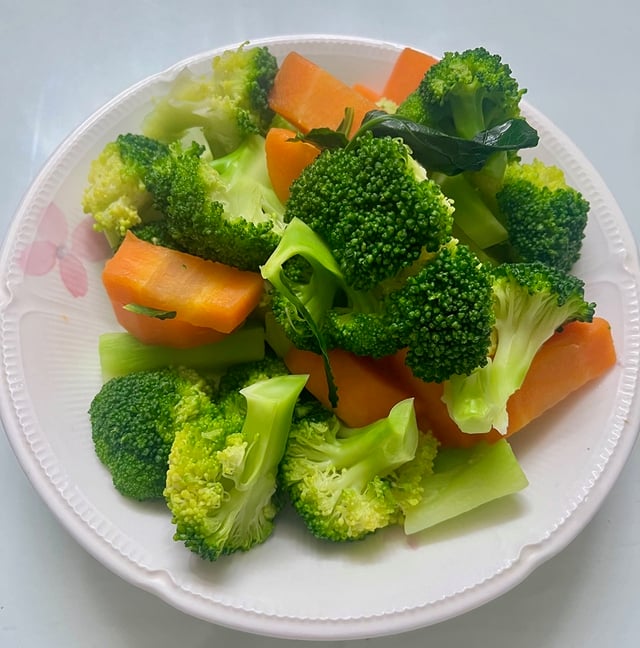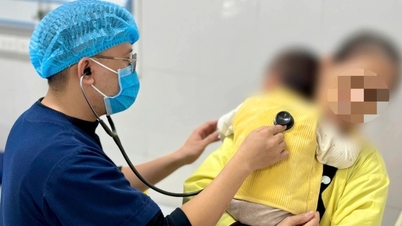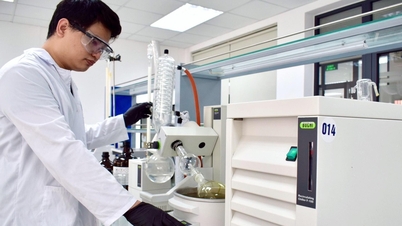Bad cholesterol and good cholesterol
In the body, cholesterol comes from two sources: from the body's production and from food. Cholesterol in the body is produced in the liver 80%. In food, cholesterol is abundant in meat, milk, egg yolks, and animal organs.
Thus, cholesterol at a certain level is necessary, the body cannot lack, only when it increases too high will it cause disease. This case is called hypercholesterolemia, in the community still commonly called "hyperlipidemia". This phenomenon causes atherosclerosis, narrows blood vessels and is the main cause of cardiovascular disease.

Diet plays an important role in the treatment of hypocholesterolemia.
PHOTO: LIEN CHAU
Cholesterol does not dissolve in blood. Therefore, when cholesterol circulates in the blood, it must be surrounded by a protein coat called a lipoprotein. There are two important types of lipoproteins: low-density lipoprotein (LDL) and high-density lipoprotein (HDL).
LDL cholesterol carries most of the body's cholesterol. When there is too much LDL in the blood, fatty deposits build up in the artery walls, leading to atherosclerosis, which is why LDL is called "bad" cholesterol.
In contrast, HDL takes cholesterol out of the blood and prevents it from entering the artery walls, which is why HDL is called "good" cholesterol.

PHOTO: LIEN CHAU
Diet to prevent atherosclerosis
According to the Institute of Nutrition, eating a lot of animal fat, foods high in cholesterol or too much energy will increase LDL and total cholesterol, causing atherosclerosis, myocardial infarction, stroke...
Diet plays an important role in treating low blood cholesterol, preventing atherosclerosis and coronary artery disease with principles such as: reducing total daily energy intake to lose weight, if overweight or obese.
Reduce the energy intake step by step, reducing the patient's food intake by about 300 kcal per week until the energy intake corresponding to the BMI level is achieved. Weight and BMI should be monitored to adjust total calories monthly or quarterly to prevent too rapid or too much weight loss.
Reduce fat (lipid) intake. Depending on BMI, fat should only account for 15 - 20% of total energy. Saturated fat accounts for 1/3 of total fat; 1/3 is polyunsaturated fatty acids; and the remaining 1/3 is monounsaturated fatty acids. Use peanut oil, olive oil, soybean oil instead of lard and eat oil seeds such as sesame, peanuts, chestnuts, pumpkin seeds to provide polyunsaturated fatty acids omega 3, omega 6. If possible, supplement with natural fish oil because it contains many unsaturated fatty acids.
Eliminate foods high in saturated fatty acids such as: fat, butter, meat broth. Reduce cholesterol intake to less than 250 mg/day, by not eating foods high in cholesterol such as: brain, pork kidney, pork liver, chicken liver. Egg yolks are high in cholesterol, but also contain a lot of lecithin, a substance that regulates cholesterol metabolism in the body. Therefore, in people with high blood cholesterol, it is not necessary to abstain from eggs completely, but should only eat eggs 1-2 times/week.
Increase protein intake by using lean meats such as lean beef, skinless chicken, pork loin, and fish and beans. Eat products made from soybeans: soy milk, tofu, bean curd, soybean powder, soy yogurt... and limit sugar and honey; use cereals combined with tubers. Eat brown rice or brown rice to provide more fiber to help eliminate endogenous cholesterol.
Eat lots of vegetables and fruits (500 grams/day) to provide enough vitamins, minerals and fiber.
After the age of 20, you should check your blood lipids once a year and after the age of 50, you should check your total cholesterol, triglycerides, LDL, and HDL every 6 months. Based on that, you can adjust your diet and physical activity. If adjusting your diet and lifestyle does not reduce your blood cholesterol, you should see a doctor for examination and guidance on taking cholesterol-lowering drugs, according to the Institute of Nutrition.
Source: https://thanhnien.vn/an-gi-de-loai-tru-mo-mau-xau-185250920160745511.htm












































![[Video] Hue Monuments reopen to welcome visitors](https://vphoto.vietnam.vn/thumb/402x226/vietnam/resource/IMAGE/2025/11/05/1762301089171_dung01-05-43-09still013-jpg.webp)
















































![Dong Nai OCOP transition: [Part 2] Opening new distribution channel](https://vphoto.vietnam.vn/thumb/402x226/vietnam/resource/IMAGE/2025/11/09/1762655780766_4613-anh-1_20240803100041-nongnghiep-154608.jpeg)













Comment (0)